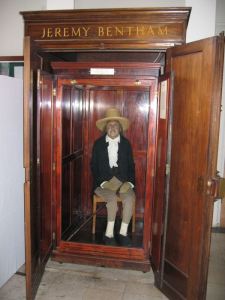“Mama, I’m as concerned about Diana as you are. If she truly needs me, I will always be there to help her.”
“Of course.” She poked her elegant finger among the brooches and earrings in the ornate box. “You’ve managed everything quite well up to now, have you not? But beware, my darling. We have only just arrived in London. Inevitably, Diana is bound to choose another improper friend. One that may not be as amenable to your carte blanche as Miss Swynford.”
“Did you say Diana’s gone out riding? I should go call for my horse.”
The dowager cocked her head. “Your niece is all the way to Hyde Park by now, most likely. Quite keen, she was, to try out her new mare.”
“That wretched animal she picked up from the horse knackers? The dealers at Tattersall’s were glad to be rid of her after she injured one of their grooms.”
“The very one. She tried to kick one of ours in the head just this morning.”
Diana’s Garnet was never a favorite of her Uncle Russell’s. She was an ill-tempered mare and he always said Diana rode her just to spite him. But in his heart he was proud of his niece for saving the animal from the knackers, and for trying to make something of the tall, angular chestnut. He knew Diana needed Garnet, just as Garnet needed Diana. The Marquess of Wimberley was only too aware that the victim of abuse, be it man or beast, can sometimes be set upon the road to healing when given a purpose–a destiny. And his lordship fervently hoped this first step for Diana would lead her toward recovery. Little did he know it would lead him there as well.
The notion of rescuing animals–saving them from ill-treatment–was a topic of considerable discussion in the Regency period. Philosophy was motivated in those days by new ideas about the rights of man. A century before, Locke, and later Kant, had already raised the notion that animal abuse was a bad thing–not for the animals, but for man. In the mid-eighteenth century Rousseau argued the matter one step further. The beasts of nature, by virtue of them being sentient, have their own right to the mercies of natural law, even if they cannot reason on their own.
The entire idea of introducing laws to protect animals remained, however, purely philosophical.
It was also something of a comedy. Wollstonecraft’s In Defense of the Rights of Woman at the close of the eighteenth century was met with another tract published under the satirical title, Vindication of the Rights of Brutes. In other words, if we give rights to women, we shall dashed well have to give them to the beasts!
Enter Lansdowne House and one of the Marquess’ most illustrious guests–Jeremy Bentham (1748 – 1832). He was a philosopher well-known for his radical notions about freedom and equal rights, getting the C out of the E (ie, separating church and state), and abolishing slavery. When it came to animal rights, he brushed aside natural law as “nonsense upon stilts” and made an argument that was unanswerable:
“…The question is not, Can they reason?, nor Can they talk? but, Can they suffer?”
It must be said he did not oppose the use of animals for medical research. He gave his own body to a medical college for public dissection and ordered that his corpse be put on display in an auto-icon. 
When not engaged in philosophical dialogue, Bentham was known for courting women with “clumsy jocularity” (Michael St. John Packe’s The Life of John Stuart Mill). The women in particular were members of the Marquess of Lansdowne’s family. It appears from some of Bentham’s correspondence the ladies had refused to receive him when he called at Lansdowne House. His style of rebuke, a mixture of pleasantries and irony so typical of the Regency, is amusing:
“I am glad to find you have begun to feel something like remorse; it is a virtuous sentiment–do not struggle to suppress it.”

Angelyn, What a good post. I read Bentham in university and he became one of my favorite philosophers. I loved your excerpt.
LikeLike
Thank you very much, Ella! You’ve reblogged it as well–a wonderful compliment–I do very much appreciate you…
LikeLike
Reblogged this on Ella Quinn ~ Author and commented:
Your Angelyn’s Blog Post
LikeLike
many thanks
LikeLike
Interesting post, Angelyn! Since horses were primary sources of transporation then, I’m sure a lot of animal abuse went on.
LikeLike
Thanks, Susan. In this post somewhere is a little girl who despaired over Black Beauty.
LikeLike
As usual, a most interesting post. If humanity broadened it’s scope to eradicate suffering and include all humanity and animals, there might be far less abuse and a happier world.
I will have to look into the writings of of Bentham.
Thank you.
LikeLike
Insightful comment–you sound like an expert on Bentham. Thank you for stopping by, Sandy.
LikeLike
Wish we could say we have progressed in today’s world. Unfortunately, there is still abuse…animal and otherwise. Thanks for a wonderful post.
LikeLike
Quite right–we have a long way to go.
LikeLike
A topic very near and dear to my heart. I have several rescued animals and am familiar with the history of animal welfare in the U.S., but know very little about it during the Regency period. Thanks for another thought-provoking post.
LikeLike
Glad you enjoyed it, Ally.
LikeLike